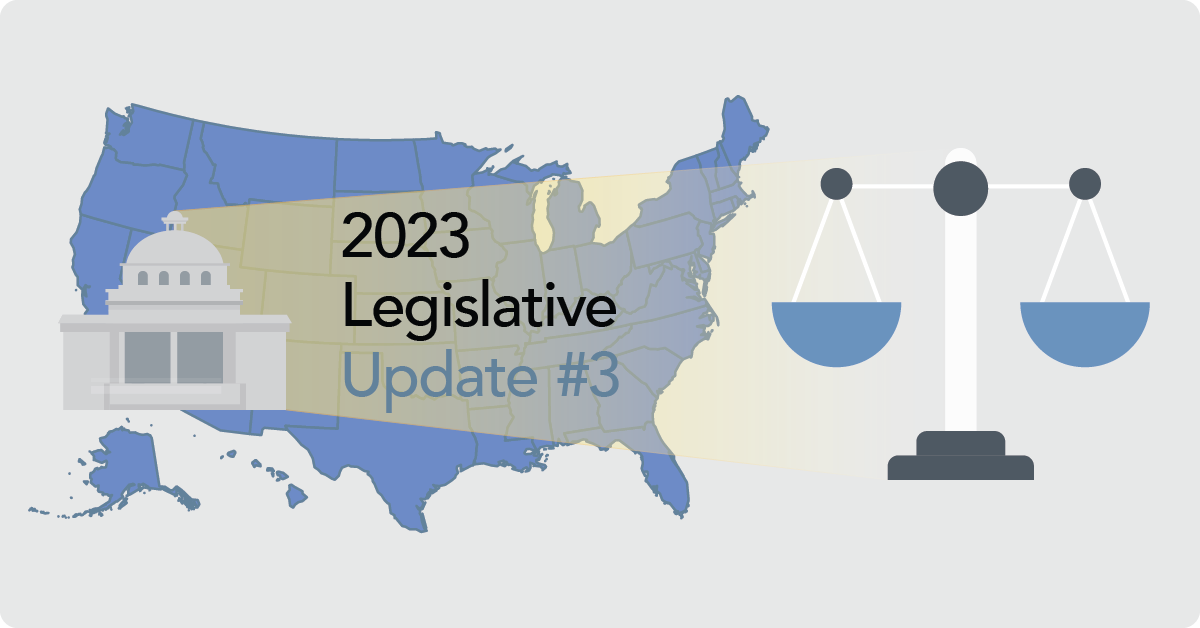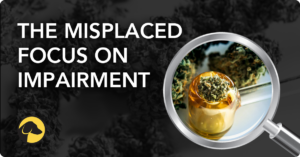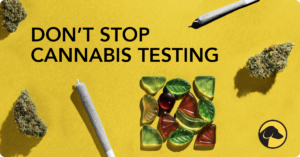
First Came Cannabis Legalization, Now Comes Fairness
Summer is heading into its final stretch, and we’re more than halfway through 2023. While the past several months may feel like they’ve gone by quickly, enough time has passed for some serious movement to take place in the cannabis legislation arena. With cannabis legalization and regulations changing so rapidly, it can be hard to keep track. So we’re here to break it down for you.
TWO NEW CANNABIS-RELATED LAWS
One of the most significant changes took place on May 9, when Governor Jay Inslee of Washington state signed Senate Bill 5123 (S.B. 5123) into law. As mentioned in my previous blog, this bill will limit many employers from discriminating against job applicants for off-duty cannabis use. In addition, it may prevent some employers from making hiring decisions based on drug tests that screen for THC’s non-psychoactive metabolites. If this sounds familiar, it is – similar legislation recently passed in California. On September 18, 2022, Governor Gavin Newsom signed California A.B. 2188 into law, which makes it unlawful for most employers to discriminate based on off-duty cannabis use or drug tests that screen for non-psychoactive metabolites.
Laws will go into effect on January 1, 2024, so employers in California and Washington are working diligently to determine the best ways to comply with the new regulations. In both states, certain protections will keep cannabis users from being penalized for cannabis use off the job and away from their workplace. Both states also carve out exceptions for safety-sensitive roles, though the definitions for safety-sensitive vary slightly under the letter of the law.
Another major component of the legislation is regulating employment drug tests, specifically calling out tests that detect non-psychoactive metabolites as impermissible for adverse action decisions. This means many employers will no longer be able to perform workforce drug tests using urine, hair, or blood for cannabis since these tests cannot differentiate between the psychoactive and non-psychoactive components of cannabis. Cannabis breath testing, however, is an effective alternative since it targets the THC molecule itself.
While the intent of the laws is the same – to prevent discrimination against applicants and employees for past cannabis use – the laws are not carbon copies. The Washington law applies specifically to job applicants in the initial hiring stage; the California law is broader, applying to drug tests for any employment decision. It’s important for employers to pay attention to these nuances before adapting their drug testing policies.
CANNABIS TESTING + COOKIE DOUGH
In January 2017, I was on a trip to New York City. At the time, one of the latest food crazes was safe, edible cookie dough, a new and exciting sensation taking the social media world by storm. I stood in line in the freezing cold for an hour, waiting for a scoop of cookie dough. People could finally eat cookie dough safely and without the fear of eating raw eggs. I personally am not even a huge fan of cookie dough, but what can I say? Curiosity got the best of me.
Well, suffice it to say that I wasn’t the only one. Safe-to-eat cookie dough is everywhere now, even around the corner from my house at a small bakery in the suburbs. It’s become a mainstay dessert, on menus across the country, no longer found only at a small shop in Greenwich Village. This increased availability is the result of people recognizing the new cookie dough as being safer and better. People can enjoy eating cookie dough (we all take tastes even when we know we shouldn’t) but with a modern approach.
DOMINO EFFECT
I share this story to illustrate that when one change occurs, a domino effect often follows. People regularly ask if I think more states will pass laws similar to the ones we’ve seen in California and Washington. While it’s impossible to know with any certainty, my educated guess is yes. These laws make it easier for employers to maintain safe workplaces while also preventing discriminatory actions. When one or two states adopt innovative and progressive laws in response to legalized cannabis, other states are likely to follow.
This new wave of legislation from California and Washington also provides lawmakers in other states an alternative to problematic laws focused on impairment. As we have discussed at length in previous blogs, a cannabis impairment standard does not yet exist. Creating an impairment standard is a nearly impossible task, meaning it’s not likely to be fully defined any time soon. Creating laws around a standard that isn’t defined is inherently flawed and creates a terrible headache for employers. But employers do need to have safe work environments and the ability to keep cannabis on their drug testing panel.
The California and Washington laws help employers accomplish both of these goals and maintain employee privacy, without relying on a hypothetical impairment standard. Both laws protect those who use cannabis off the clock, giving applicants and employees the ability to use cannabis without the fear of repercussions in their professional lives. Further, the laws ban tests that detect non-psychoactive metabolites and prevent employers from basing decisions on test results showing cannabis use hours, days, or weeks before the workday.
HOW CAN EMPLOYERS PREPARE?
We are five months away from California A.B. 2188 and Washington S.B. 5123 going into effect, so employers in those states are wondering what to do next. The first and most important thing is to work with the right experts to review and revise existing workplace drug testing policies. Review all procedures with outside counsel to ensure compliance with every provision of the law. Remember that breath is a viable test type to comply with these laws, as it measures active THC (rather than non-psychoactive metabolites) and narrows the window of detection to recent use. Finally, make sure to advise all employees and applicants about any relevant changes to policies, including the clarification that cannabis testing is not eliminated by these laws.
For more information about how the HOUND® CANNABIS BREATHALYZER can help your organization, contact us today.

August 10, 2023
By JESSICA COHEN TAUBMAN
Share












